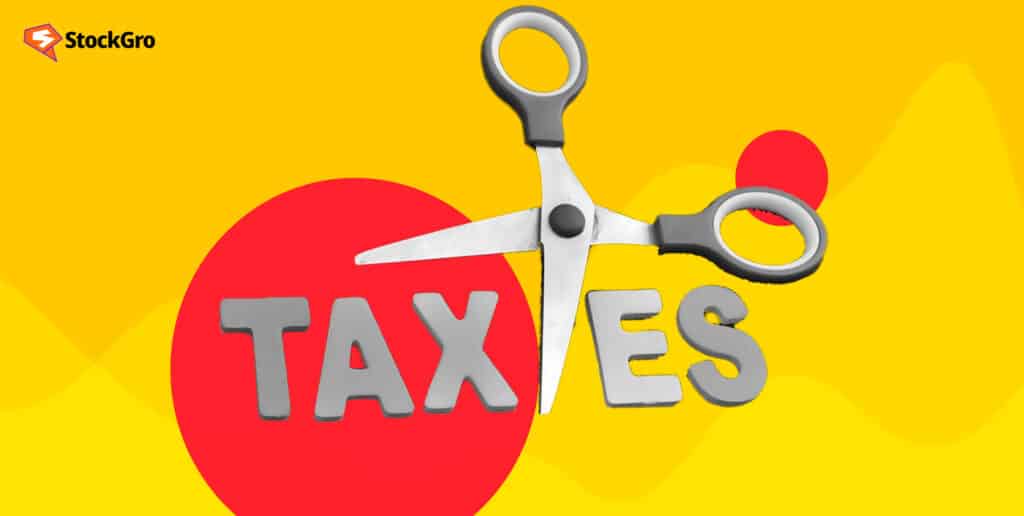
Personal loans can provide helpful financing for significant expenses, but did you know they may also offer tax benefits? While personal loans themselves are not tax deductible, you may be able to deduct interest payments if you use the loan for specific purposes, like funding a business or improving your home.
This article explores Personal Loan Tax Exemption in India. Learn about deducting interest payments for businesses, investments, residential property, and more. Let’s begin!
What is a personal loan?
Financial organisations offer personal loans, which are unsecured sources of credit, to borrowers depending on their income, occupation, duration of employment, and credit score. Any of your pressing financial demands may be quickly met with a personal loan, sometimes called a consumer loan.
Your salary, occupation, and the lender’s evaluation of your loan application determine the maximum amount you may borrow. The loan amount that a company owner or self-employed person may get depends on the earnings in their profit and loss account.
In the case of salaried professionals, the amount will be determined by the lender, considering your salary and any other liabilities you may have.
Also read: Stress to success: Transforming financial anxiety into financial freedom
How to Calculate Personal Loan Eligibility?
Before you can claim a personal loan tax exemption in India, you first need to apply for and qualify for a personal loan. Meeting the required eligibility criteria is crucial for approval.
Let’s take a look at the key factors that influence personal loan eligibility and the tools available to help you build a strong loan application:
- Age: You must be between 21 and 65 years old, with an age limit of 65 years applicable at the time of loan maturity.
- Monthly Income: Your monthly income is a primary factor. Lenders typically prefer applicants with a stable and sufficient income to ensure timely repayments.
- Credit Score: A good credit score (Typically above 750) increases your chances of getting a higher loan amount at a lower interest rate, as it reflects your creditworthiness and repayment history. Lenders prefer applicants with a strong credit score because it indicates a lower risk of default.
- Existing Debts: Lenders assess your current debt obligations to ensure you can manage additional debt. A lower debt-to-income ratio is favorable. Employment
- History: A stable employment history with a reputable employer can positively impact your eligibility.
- Loan Amount and Tenure: The amount you wish to borrow and the repayment tenure also play a role. Longer tenures may result in higher eligibility but also higher interest costs.
Please note that these are indicative factors, and your final eligibility will be determined after a comprehensive assessment by the lender.
Can you get tax exemptions on personal loans in India?
In most cases, a person’s income is subject to taxation. A person’s monthly salary does not include a personal loan tax exemption. Thus, it is not subject to taxes and cannot be used to claim any tax benefits.
While this is true, it doesn’t mean that a personal loan can’t help with taxes in any way. There is a way through which you can get tax benefits on your personal loans. Let’s discuss this in the following section.
Also read: Managing Business Finances Effectively
How do you get a personal loan income tax exemption?
The Indian Income Tax Act does not provide any special exemptions for personal loans. On the other hand, there is a loophole that allows for tax benefits on mortgages and student loans.
To get tax benefits on your personal loan, your eligibility to receive the exemption depends on your ability to prove that the funds were used for specific purposes.
Individuals might use those to their advantage when filing their taxes for a personal loan. Let’s talk about these in more depth now.
For business purposes:
Tax deductions are available for the interest paid by borrowers who use their loan funds to start or grow their businesses. The borrower may reduce their taxable income by the amount of interest if it is considered an expense.
Anyone may take advantage of this tax break if they employ a personal loan tax exemption for business purposes, since the borrower was able to lower their taxable income thanks to the loan.
You may claim business loan repayment costs as a tax deduction as they are considered a separate expense from income or profit under the Income Tax Act of 1961. Borrowed funds used to purchase machinery, tools, and construction supplies for a business may be written off as a tax deduction. This is a great way to benefit from a personal loan tax exemption while growing your business.
Investing in assets:
If you take out a personal loan and invest the money in assets like gold, securities, equities, or non-residential properties, you may be eligible for a personal loan tax exemption on the interest paid. The interest paid on a personal loan tax exemption may be deducted from the borrower’s taxable income if they use the money to purchase an asset.
Including this in the purchase cost lowers the capital gains when the asset is sold, which means there is no tax due on that sale.
Residential construction/purchase:
For borrowers who use their personal loans for residential construction or purchase, a personal loan tax exemption can be claimed on the interest paid under Section 24(b) of the Income Tax Act, 1961. For properties that are either used for self-occupation or are considered to be let out, the borrower is eligible to claim a maximum tax deduction of 2,00,000 rupees.
Under certain circumstances, all of the interest paid on the mortgage might be deducted from taxable income if the property is leased out.
Residential property improvement:
Under Section 80C, salaried individuals can avail of a personal loan tax exemption if the loan is used for home improvements rather than for building or buying a home.
Within one year of the property’s sale, the borrower must pay all requested exemptions. There is a cap of ₹1,50,000 on tax exemptions under Section 80C.
Also read: Mastering the maze: Your pathway out of student loan debt
Personal loan tax exemption for salaried
If paid workers can get a personal loan tax exemption without paying taxes on it, the answer depends on what the user plans to do with the money from the loan.
Under Section 80C of the Income Tax Act of 1961, people who take out personal loans tax exemption in India may claim a tax refund. Under this provision, people may deduct up to INR 1.5 lakh in certain costs per fiscal year, including the principal and interest on certain loans.
If you have a personal loan, you may reduce your taxable income and save on taxes by deducting the amount you pay back each year.
This personal loan tax exemption can be a significant benefit for salaried individuals looking to optimize their tax savings.
Conclusion
In summary, while personal loans themselves don’t qualify for tax exemptions in India, strategic use of the loan funds can get you certain tax benefits. Carefully track how you use personal loan tax exemption money for purposes like funding businesses, investing in assets, residential construction, or home improvements.
With proper planning, personal loan tax exemption can be beneficial while also minimising your annual tax bill.

